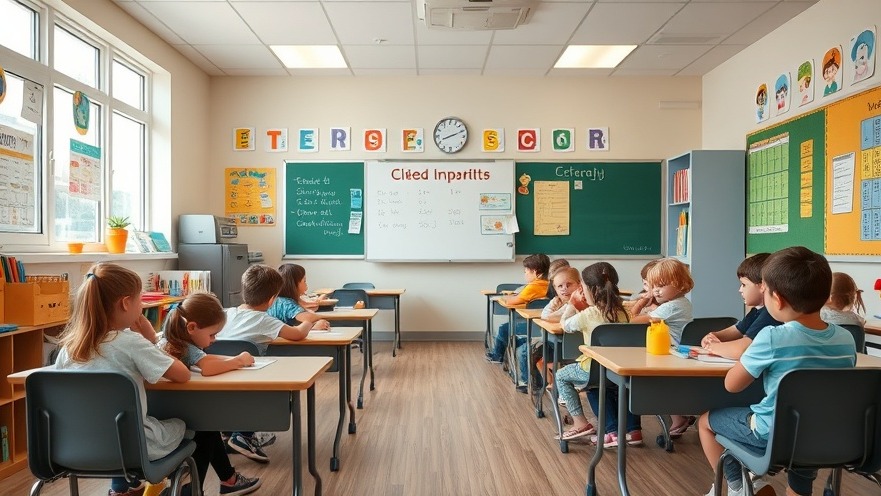
The Growing Concern Over Vaccination Rates in Texas Kindergarteners
Every year, the beginning of the school season brings anticipation not just for students but also for educational leaders and health officials. However, this year, Texas finds itself facing an alarming trend: an increasing number of kindergarteners starting school without proof of measles vaccination or exemptions. This situation raises significant public health concerns that require immediate attention and action.
Understanding Vaccination Requirements
In Texas, current regulations stipulate that all students must show proof of vaccination against certain diseases, including measles, prior to enrolling in public schools. While exemptions are allowed for medical and conscientious reasons, the recent data indicates that many families are either failing to meet this requirement or are navigating the exemption process incorrectly. According to recent reports, over 7,500 kindergarteners in Texas lack the necessary documentation to show they are vaccinated or have received an exemption.
Health Implications of Low Vaccination Rates
The implications of declining vaccination rates are severe. Measles, once declared eradicated in the United States, is highly contagious and can lead to serious health complications, including pneumonia and encephalitis. In 2019, the United States experienced its largest measles outbreak since 1992 due, in part, to low vaccination rates in certain communities. Experts warn that if Texas communities do not address the rising numbers of unvaccinated children, a similar outbreak could occur, endangering not only those who are unvaccinated but also those who cannot be vaccinated due to medical reasons.
Challenges Parents Face
Many parents face a myriad of challenges related to vaccinations, including misinformation regarding vaccine safety, access to healthcare providers, and the process of obtaining exemptions. Some parents may believe that vaccines are linked to various health concerns, despite overwhelming scientific evidence supporting their safety. Additionally, navigating the exemption process can be daunting and often requires unfamiliar paperwork that many families might not know how to effectively manage.
Community Responses and Solutions
Cities across Texas are responding to the growing vaccination crisis through public health campaigns aimed at educating parents on the importance of vaccinations and providing resources to help overcome barriers to accessing them. Community clinics and outreach programs are being established, offering easily accessible vaccinations and support in completing the necessary paperwork for exemptions. Moreover, schools are encouraged to play an active role by sending reminders and educational materials home with students, creating a push towards higher compliance rates.
Future Outlook: Strengthening Vaccination Rates
The long-term solution involves a concerted effort from public health officials, school administrators, and families alike. Engaging local health departments to increase awareness about vaccination programs and providing families with clear pathways to ensure their children are protected should be prioritized. Proactive measures, such as requiring educational sessions on immunization upon enrollment, may also help in fostering a culture of vaccination in schools.
The stakes are high when it comes to children's health; thus, addressing these declining vaccination rates is a critical public health initiative in Texas. Through comprehensive community investment and cooperation, it’s possible to ensure that Texas kindergarteners enter school ready, safe, and protected against preventable diseases.
 Add Element
Add Element  Add Row
Add Row 



Write A Comment